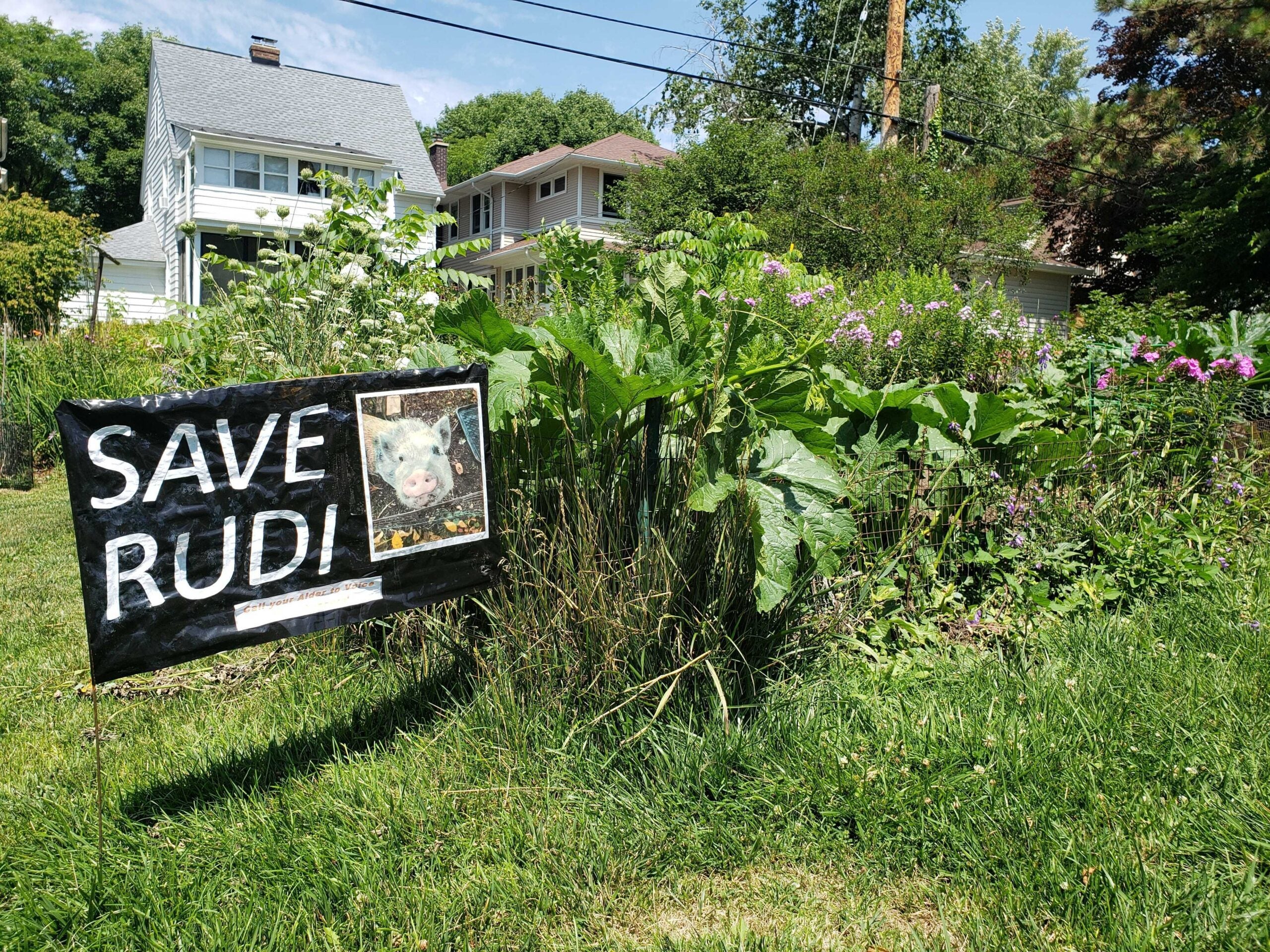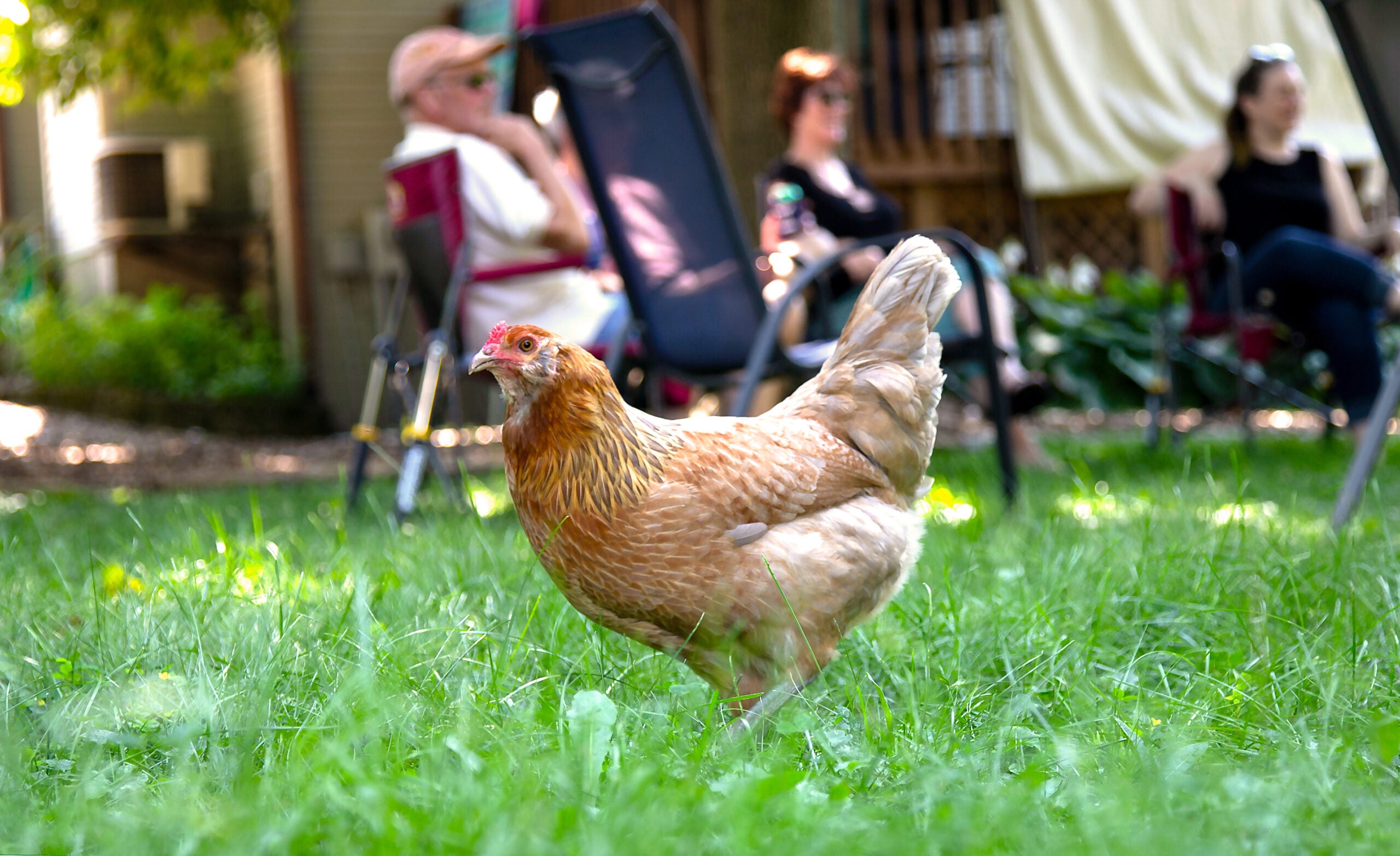A newly-approved ordinance allows Madison residents to keep miniature pigs as pets.
The change follows city-wide uproar after a beloved swine was threatened with eviction.
For more than a year, a Juliana pig called Rudi has lived in a yard along Madison’s Southwest Commuter bike path. He’s become known for his strolls through the neighborhood, while his human walks him on a leash.
News with a little more humanity
WPR’s “Wisconsin Today” newsletter keeps you connected to the state you love without feeling overwhelmed. No paywall. No agenda. No corporate filter.
But, after a complaint from a neighbor, Public Health Madison & Dane County sent Rudi’s owners a notice on July 13 informing them that their pig is illegal under city code. It warned them they could face a fine if Rudi wasn’t re-homed.
Now, following an 11-8 vote from the Common Council Tuesday night, Rudi has the all-clear to stay in Madison.
The amended ordinance allows one vaccinated pig per household. A pet pig can’t weigh more than 300 pounds, and it must be outfitted with a microchip that identifies its owner by name and address. The pig can venture from its home, as long as it is led by “competent individual” on a leash no more than 6 feet long.
“There are times we can do the easy thing and … spread a little joy in our city,” said Alder Tag Evers, a sponsor of the pro-pig ordinance.
The Board of Health for Madison and Dane County voted unanimously earlier this month to recommend the ordinance’s passage. But Madison resident Robert Borman warned the Common Council that not every owner will be responsible.
“You’re just allowing more animals that should be on the farm into the city,” Borman said during public comment Tuesday. “What happens is you get a lot of individuals that will not respect the laws and that will go overboard and there will be a smell.”
Unless someone complains, local officials appear to have largely had a dont-oink-don’t-tell policy when it comes to urban pigs in the past.
John Hausbeck, an environmental health supervisor with Public Health of Madison & Dane County, told the Common Council Tuesday the department doesn’t track the total number of Madison pigs.
Hausbeck said the department is aware of at least three pigs, but estimated there could be as many as 10 living in the city.
In an email to Wisconsin Public Radio Wednesday, Paula Niedenthal, one of Rudi’s owners, said she was “pleased” with the Common Council’s vote.
In the months since receiving the notice, Niedenthal said Rudi has been mostly living in Madison.
“I brought him back because I was advised that the amendment was being researched and written, and that during this period the ordinance was unlikely to be enforced or at least that I might postpone paying a fine until after the council had voted,” Niedenthal, a professor of psychology at the University of Wisconsin-Madison, wrote. “However, I’ve had Rudi out on the bike path far less in order to not attract so much attention to him.”
A spokesperson for the local health department confirmed Wednesday that Rudi’s owners have not been fined, adding that officials there were under the impression that Rudi was living on a farm outside Madison.
“The owners of Rudi also have agricultural property in a county north of Madison and we were told that Rudi went there,” Communications Coordinator Morgan Finke wrote in an email.
Wisconsin Public Radio, © Copyright 2025, Board of Regents of the University of Wisconsin System and Wisconsin Educational Communications Board.






